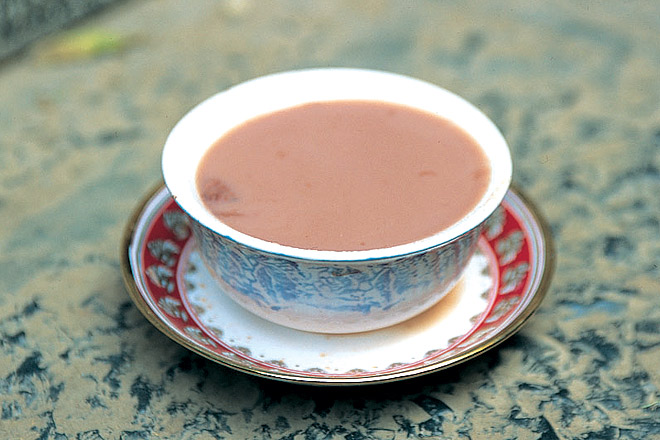Nun chai, or Gur-gur chai as it is known across the Zojila, is a pinkish salted tea
The Ladakhis regard gur-gur chai as one of the best antidotes to dehydration and cold. Every Ladakhi kitchen has a gur-gur (quiver shaped churn for the tea) of varying vintage, from garish plastic ones to exquisitely carved and brass fitted wooden ones. The tea is had most often with Tsampa (made of roasted and ground barley). Unlike nun chai, gur-gur chai is made in pans or cauldrons.
Both brews are drunk in great quantities at all formal occasions. Conossieurs claim that the best gur-gur chai made at the Hemis Gompa has just the right amount of salt to give it a perfect tang. And journeymen write pious odes: Feed me / Gur-gur-chaa/ Knead me/ In beads of rosaries/ To half hum the prayers.


